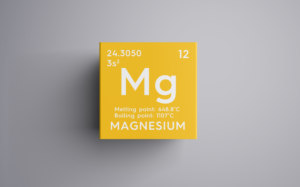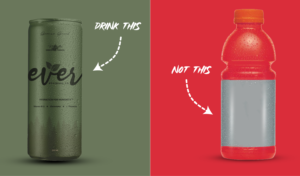
Vitamins play a crucial role in maintaining overall health and well-being. These essential nutrients are necessary for various bodily functions, from supporting immune health to aiding in energy production.
In this comprehensive guide, we explore the 13 essential vitamins, diving into what each one is, what it does in the body, and why it’s important for your health.
Natural vs. Supplemental Vitamins: Understanding the Differences
While both natural vitamins from food and supplemental vitamins can be beneficial, getting vitamins from whole foods is generally considered preferable because of the synergistic effects and bioavailability of nutrients.
However, in some cases, such as for individuals with specific nutrient deficiencies or dietary restrictions, supplements can be a useful addition to a healthy diet. It’s always best to consult with a healthcare provider before starting any new supplement regimen.
Natural vitamins found in food come from whole foods, where they are accompanied by other nutrients that may enhance their absorption and effectiveness. Supplemental vitamins, on the other hand, are isolated nutrients derived from synthetic sources or extracted from food.
The form of a vitamin can affect its absorption. Some vitamins in food are in a more bioavailable form compared to synthetic forms found in supplements. For example, vitamin E from food sources like nuts and seeds is more readily absorbed than synthetic vitamin E.
Whole foods contain a complex matrix of nutrients that can enhance the bioavailability of vitamins. For example, vitamin C from an orange is often better absorbed than a vitamin C supplement because of other compounds present in the fruit that aid absorption.
Foods contain a variety of nutrients that interact with each other. For example, vitamin C can enhance the absorption of non-heme iron (the type of iron found in plant foods) from the same meal. These interactions are not present in isolated vitamin supplements.
Some vitamins work synergistically with other nutrients in food. For example, vitamin D works with calcium and phosphorus for bone health. These synergistic effects are not replicated in isolated vitamin supplements.
While natural vitamins from food are generally considered safe, high doses of isolated vitamins from supplements can sometimes cause adverse effects. For example, high doses of vitamin A can be toxic, leading to symptoms such as nausea, headaches, and even liver damage.
Vitamin A
What it is: Vitamin A is a fat-soluble vitamin that exists in two forms: retinoids (found in animal products) and carotenoids (found in plant-based foods).
What it does: Vitamin A is essential for maintaining healthy vision, immune function, and skin health. It also plays a role in cell growth and differentiation.
Why it’s important: A deficiency in vitamin A can lead to night blindness, increased susceptibility to infections, and skin issues.
Sources: Include a list of foods rich in vitamin A, such as liver, carrots, sweet potatoes, and spinach.
Forms: Mention the difference between preformed vitamin A (retinol) and provitamin A carotenoids (beta-carotene).Benefits: Discuss how vitamin A supports vision, skin health, and immune function.
Deficiency: Describe the symptoms and consequences of vitamin A deficiency, particularly in vulnerable populations like pregnant women and children.
Vitamin C
What it is: Also known as ascorbic acid, vitamin C is a water-soluble vitamin found in fruits and vegetables.
What it does: Vitamin C is a powerful antioxidant that helps protect cells from damage, aids in collagen production, and enhances immune function.
Why it’s important: Vitamin C deficiency can lead to scurvy, a condition characterized by fatigue, swollen gums, and easy bruising.
Benefits: Highlight the antioxidant properties of vitamin C and its role in collagen synthesis and wound healing.
Sources: List fruits and vegetables that are excellent sources of vitamin C, like oranges, strawberries, and bell peppers.
Deficiency: Discuss the symptoms of vitamin C deficiency, including scurvy, and how it was historically addressed in sailors and explorers.
Vitamin D
What it is: Vitamin D is a fat-soluble vitamin that can be synthesized by the body when the skin is exposed to sunlight.
What it does: Vitamin D is crucial for maintaining healthy bones and teeth, supporting immune function, and regulating mood.
Why it’s important: A deficiency in vitamin D can lead to bone disorders such as rickets in children and osteomalacia in adults.
Sunlight Exposure: Explain how the body synthesizes vitamin D when exposed to sunlight and factors that can affect this process.
Supplementation: Discuss the role of vitamin D supplements, especially in regions with limited sunlight exposure.
Health Conditions: Mention conditions associated with vitamin D deficiency, such as rickets and osteomalacia.

Vitamin E
What it is: Vitamin E is a fat-soluble vitamin found in nuts, seeds, and vegetable oils.
What it does: Vitamin E is a powerful antioxidant that helps protect cells from damage. It also plays a role in immune function and skin health.
Why it’s important: Vitamin E deficiency is rare but can lead to nerve and muscle damage.
Types: Differentiate between tocopherols and tocotrienols, the two main groups of compounds that make up vitamin E.
Benefits: Describe how vitamin E protects cells from oxidative stress and its potential role in reducing the risk of chronic diseases.
Research: Summarize recent studies or findings related to vitamin E and its health benefits.
Vitamin K
What it is: Vitamin K is a fat-soluble vitamin found in leafy green vegetables, dairy products, and fermented foods.
What it does: Vitamin K is essential for blood clotting and bone metabolism.
Why it’s important: A deficiency in vitamin K can lead to excessive bleeding and impaired bone health.
Types: Discuss the difference between vitamin K1 (phylloquinone) and vitamin K2 (menaquinone) and their respective sources.
Blood Clotting: Explain the role of vitamin K in the coagulation cascade and how it helps prevent excessive bleeding.
Bone Health: Mention how vitamin K contributes to bone health by assisting in the mineralization process.

Vitamin B Complex
Vitamin B complex refers to a group of eight water-soluble vitamins that play important roles in cell metabolism. These vitamins are essential for various bodily functions, including energy production, red blood cell formation, and nerve function. The B vitamins are:
- Vitamin B1 (Thiamine)
- Vitamin B2 (Riboflavin)
- Vitamin B3 (Niacin)
- Vitamin B5 (Pantothenic Acid)
- Vitamin B6
- Vitamin B7 (Biotin)
- Vitamin B9 (Folate)
- Vitamin B12
Each B vitamin has its own unique functions and benefits, but they often work together synergistically. For example, vitamin B6 is needed to metabolize amino acids, while vitamin B12 is necessary for the production of red blood cells and DNA.
A deficiency in one or more B vitamins can lead to various health issues, such as fatigue, anemia, and nerve damage. Eating a balanced diet that includes a variety of foods rich in B vitamins, such as meat, fish, dairy products, legumes, and leafy greens, is essential for maintaining optimal health. In some cases, supplementation may be recommended, especially for individuals with specific dietary restrictions or health conditions that affect nutrient absorption.
Vitamin B1 (Thiamine)
What it is: Vitamin B1 is a water-soluble vitamin found in whole grains, nuts, and meat.
What it does: Vitamin B1 plays a crucial role in energy metabolism and nerve function.
Why it’s important: A deficiency in vitamin B1 can lead to beriberi, a condition characterized by nerve damage and heart issues.
Vitamin B2 (Riboflavin)
What it is: Vitamin B2 is a water-soluble vitamin found in dairy products, eggs, and green leafy vegetables.
What it does: Vitamin B2 is essential for energy production and maintaining healthy skin and eyes.
Why it’s important: A deficiency in vitamin B2 can lead to skin disorders and eye issues.
Vitamin B3 (Niacin)
What it is: Vitamin B3 is a water-soluble vitamin found in meat, fish, and whole grains.
What it does: Vitamin B3 plays a crucial role in energy metabolism and DNA repair.
Why it’s important: A deficiency in vitamin B3 can lead to a condition called pellagra, characterized by skin rashes, digestive issues, and mental symptoms.
Vitamin B5 (Pantothenic Acid)
What it is: Vitamin B5 is a water-soluble vitamin found in a wide variety of foods, including meat, eggs, and whole grains.
What it does: Vitamin B5 is essential for energy production and synthesizing cholesterol.
Why it’s important: Vitamin B5 deficiency is rare but can lead to fatigue, irritability, and digestive issues.
Vitamin B6
What it is: Vitamin B6 is a water-soluble vitamin found in a variety of foods, including meat, fish, and nuts.
What it does: Vitamin B6 is essential for amino acid metabolism, neurotransmitter synthesis, and immune function.
Why it’s important: A deficiency in vitamin B6 can lead to anemia, nerve damage, and weakened immune function.
Vitamin B7 (Biotin)
What it is: Vitamin B7, also known as biotin, is a water-soluble vitamin found in foods like eggs, nuts, and whole grains.
What it does: Vitamin B7 is essential for energy metabolism, fatty acid synthesis, and maintaining healthy hair, skin, and nails.
Why it’s important: Biotin deficiency is rare but can lead to hair loss, skin rashes, and neurological symptoms.
Vitamin B9 (Folate)
What it is: Vitamin B9, also known as folate or folic acid, is a water-soluble vitamin found in leafy green vegetables, legumes, and fortified grains.
What it does: Vitamin B9 is essential for DNA synthesis, red blood cell formation, and fetal development during pregnancy.
Why it’s important: A deficiency in vitamin B9 can lead to anemia and neural tube defects in newborns.
Vitamin B12
What it is: Vitamin B12 is a water-soluble vitamin found in animal products like meat, fish, and dairy.
What it does: Vitamin B12 is essential for red blood cell formation, nerve function, and DNA synthesis.
Why it’s important: A deficiency in vitamin B12 can lead to anemia, nerve damage, and cognitive decline.
The Vital Role of B Complex Vitamins in Health and Wellness
Here are a few more points to consider about the B complex vitamins:
Coenzyme Function: Many B vitamins serve as coenzymes, which means they help enzymes in the body carry out essential chemical reactions. For example, thiamine (B1) is a coenzyme in energy metabolism, while riboflavin (B2) is a component of coenzymes involved in energy production.
Stress and Energy: B vitamins are often called the “stress” vitamins because they play a key role in the body’s response to stress. They are also crucial for converting food into energy, making them essential for overall vitality.
Heart Health: Some B vitamins, such as folate (B9), vitamin B6, and vitamin B12, are important for heart health. They help lower homocysteine levels, which is a risk factor for cardiovascular disease.
Brain Function: B vitamins are essential for brain health and cognitive function. They play a role in neurotransmitter synthesis and help maintain the myelin sheath, which insulates nerve cells and allows for efficient communication.
Pregnancy: Folate (B9) is particularly important during pregnancy, as it helps prevent neural tube defects in the developing fetus. Pregnant women are often advised to take a prenatal vitamin that includes folate.
Alcohol Consumption: Excessive alcohol consumption can deplete B vitamins, particularly thiamine (B1). This can lead to neurological issues such as Wernicke-Korsakoff syndrome.
Digestive Health: Some B vitamins, such as biotin (B7) and pantothenic acid (B5), play a role in maintaining healthy digestion. They are involved in the metabolism of fats, proteins, and carbohydrates.
Vitamin B12 Absorption: Vitamin B12 absorption requires adequate stomach acid and a protein called intrinsic factor. Some individuals, particularly older adults and those with digestive issues, may have difficulty absorbing vitamin B12 from food and may require supplementation.
Overall, the B complex vitamins are crucial for overall health and well-being. Ensuring an adequate intake of these vitamins through diet and supplementation, if necessary, can help support optimal health and vitality.




